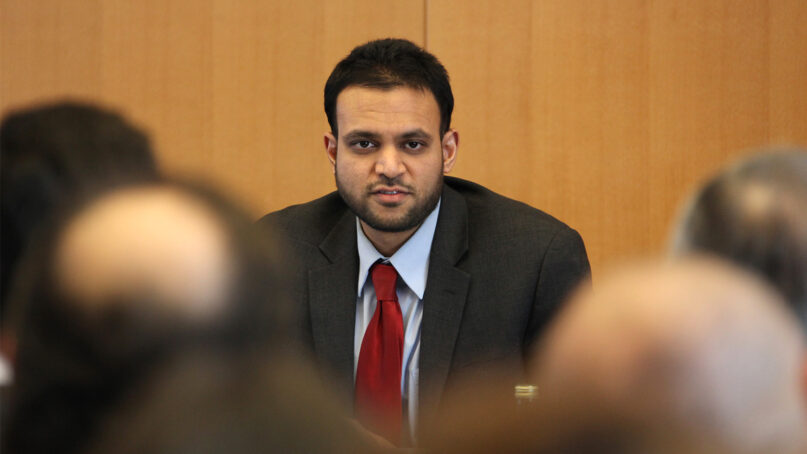(Open Doors) — Since President Joe Biden’s inauguration, religious freedom advocates urged the administration to prioritize the appointment of a new ambassador-at-large for international religious freedom. The president listened to our pleas, and on July 30, Biden nominated Rashad Hussain, who currently serves as director for partnerships and global engagement at the National Security Council.
Hussain is unable to step into his new role until he is officially confirmed by the United States Senate. But the legislative body is facing a ludicrous backlog of nominees also awaiting a hearing, and it could take months — if not years — for Hussain’s name to be called.
This post is not a run-of-the-mill government desk job. The IRF ambassador plays a critical role in human rights advancement worldwide at a time when state-sanctioned religious persecution has reached alarming levels. The Senate must fast-track Hussain’s confirmation.
According to Pew Forum’s latest research, government restrictions on religion have steadily increased for over a decade. Social hostility toward people of faith remains high. Among the world’s approximately 2.3 billion Christians, more than 340 million are at high risk of discrimination because of their beliefs.
Many high-profile religious freedom crises are well known. There’s the ongoing genocide of Uyghur Muslims in northwest China, the targeted killing of thousands of Christians in Nigeria by Islamist militants, the use of blasphemy laws to imprison religious minorities in Pakistan and, most recently, the takeover of Afghanistan by the notoriously intolerant Taliban. Yet these instances represent only a fractional part of the overall problem.
This ambassadorship is no small-time appointment. The role serves as the locus for a myriad of efforts aimed at advancing a core human right that has declined in recent years. The U.S. State Department, and specifically the Office of International Religious Freedom, compiles an annual report documenting concerns in nearly every country on earth. Most of the issues documented will never receive significant media attention and, if not for the State Department’s report, would never be compiled into a single, easy to find repository.
RELATED: China is quietly using Afghanistan to strengthen its authoritarian agenda
For outside observers, it may not be clear what the IRF ambassador does, beyond making public appearances and giving remarks calling for greater protections for religious freedom. This public role is an important task in its own right, but it’s only a small part of the job. Much of the substantive work takes place in the relationships built by the IRF ambassador, both foreign and domestic. When reports emerge of Rohingya Muslims being driven from their homes in Myanmar, or of a Hindu family attacked for their faith in Pakistan, it is the IRF ambassador and the ambassador’s team who often lead the way in focusing U.S. attention and bringing relief for the victims. In areas where government action may be limited, the IRF ambassador and the ambassador’s office help connect faith leaders and nongovernmental organizations with the resources they need to make a difference.
Hussain is undeniably qualified to step into these important shoes. He’s an Ivy League-educated attorney, a professor at Georgetown Law School and the former U.S. special envoy to the Organization of Islamic Cooperation under President Barack Obama. His nomination was roundly welcomed by advocates from across the religious and political spectrum, and no political leader on either side of the aisle has articulated a compelling reason not to confirm him to the post.
To Beltway insiders in Washington, D.C., it may seem motivated by special interest to call for the prioritization of the IRF ambassador confirmation. After all, hundreds of positions remain unfilled across the U.S. government. Yet it is exactly positions like this one, which address critical human rights concerns and enjoy broad bipartisan support, that should be prioritized.
The situation for many people of faith around the world is bleak. Delaying urgent efforts to aid them is unconscionable, no matter which party you’re from.

David Curry. Courtesy photo
(David Curry is president and CEO of Open Doors USA, which advocates on behalf of those who are persecuted for their Christian faith. Follow on Twitter @OpenDoors. For more than 60 years, Open Doors USA has worked in the world’s most oppressive and restrictive countries for Christians. Open Doors works to equip and encourage Christians living in dangerous circumstances with the threat of persecution and equips the Western church to advocate for the persecuted. Christians are one of the most persecuted religious groups in the world and are oppressed in at least 60 countries. For more information, visit OpenDoorsUSA.org.)





